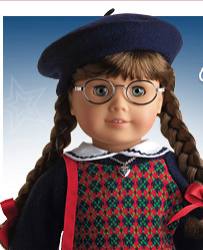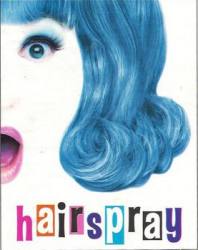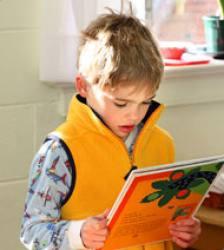What To Do For Your Child In An Emergency
- Details
- Hits: 6262
 It will likely happen sooner or later. A fall on the playground or a raging fever in the middle of the night will have you rushing your kid to the emergency room. Provided 911 does not need to be called, the closest hospital may not best fit your needs. Here's what you need to know in case of an emergency.
It will likely happen sooner or later. A fall on the playground or a raging fever in the middle of the night will have you rushing your kid to the emergency room. Provided 911 does not need to be called, the closest hospital may not best fit your needs. Here's what you need to know in case of an emergency.
Pediatrician vs. Hospital: In some cases deciding between going to the hospital and calling the doctor is obvious. If it is a major cut or a bone may be broken; head to the ER immediately. Fevers, rashes, vomiting are probably worth a call to the doctor. She may be able to give you guidance on what to do, have your child come in, or call ahead to the hospital to set up a consult with a specialist. Always consider the time of day and the severity of the situation. A trip to the doctor may be far more convenient and helpful to your child.
The Wait: Once you decide to go to the Emergency Room, get comfortable, because it's going to be a while. Although more hospitals in our area are employing fast track systems, do not expect to be in and out of there quickly. And just because a kid is the patient, do not expect to be treated faster. One doctor in a busy ER says that while they do their best to see patients in the order in which they arrive, a change in someone's vital signs or someone in a more serious situation gets seen first. Some hospitals have separate areas for kids with videos or games, but it may just be you and your kid curled up watching CNN in the waiting room.
Your Baby's Beautiful Face:Of course scarring is a concern, especially if the cut that landed your child in the ER is on the face. You can request a surgical consult (it will be suggested about a dozen times amid the flurry of texts and phone calls while waiting), but bear in mind what this ER doctor told us: "The average ER doctor has placed thousands of sutures in his or her career and a surgeon won't make a bit of difference." A plastic surgeon will likely add hours to your visit and may not be covered by insurance if it was deemed something the ER should have handled. Still, if it's a complex cut and you are worried, it is your right to ask for a surgical consult.
Where To Go: Keep this in your bag or on your fridge. There are other hospitals in Westchester, but here are several to choose from and how they stack up when it comes to treating kids:
Community Hospital At Dobbs Ferry/St. John’s Riverside Hospital
28 Ashford Ave.
Dobbs Ferry, NY
http://www.riversidehealth.org
A local hospital treating the river towns, the Emergency Department physicians provide in-house, round-the-clock medical backup to the personal physicians and specialists of our inpatients.
Greenwich Hospital
5 Perryridge Road,
Greenwich, CT
http://www.greenhosp.org
Physicians are all experienced in pediatric care. There are also specialists for infant care. Young patients often receive care in the ED's Fast Track area. Smaller devices are available for smaller patients. The hospital provides snacks, stickers, coloring books and video games to pass the time. Specially trained pediatric nurse practitioners are also on hand.
Lawrence Hospital
55 Palmer Avenue,
Bronxville, NY 10708
http://www.lawrencehealth.org
All of the Emergency Department physicians are trained in Pediatric Emergency care and during the busiest times of the day there is a pediatrician onsite. The hospital also offers specially designed equipment to address the needs of young patients.
Northern Westchester Hospital
400 East Main St.
Mt. Kisco, NY
http://www.nwhc.net
About 25% of the 28-thousand patients it treats annually are children. The Emergency Department is being redesigned to improve the flow of patients through the ER, using a fast track program, which will allow patients with non-life threatening problems to receive timely care in an area adjacent to the main Emergency Room.
PM Pediatrics
620 East Boston Post Rd.
Mamaroneck, NY
www.pmpediatrics.com
After hours care for children through age 21 It is staffed by Pediatric Emergency Specialists. It is an alternative to the ER to treat kids for wounds, broken bones or sprains, fever, vomiting and diarrhea, asthma and ear infections. They have on site lab services. It is open nights and weekends 365 days a year. M-F 5:00pm-Midnight, Saturday and Sunday: Noon-Midnight and holidays. If a child requires admission to a hospital, PM Pediatrics can arrange direct-to-floor admission, bypassing the Emergency Department.
White Plains Hospital
41 East Post Road,
White Plains,NY
http://www.wphospital.org
Treating over 48,000 patients a year, it’s the most active emergency room in Westchester County. The hospital has a Pediatric Emergency Center inside the main ER with toys and activities, including 3 Wii stations to pass the time. White Plains doubled the size of its former facility and employs a ‘fast track’ unit for those whose needs are less urgent.
Jen is a freelance journalist who has covered the economy and markets for over a decade at a major financial news outlet. She lives in Scarsdale with her husband and 2 children. Jen has yet to bake a successful batch of cookies.
American Girl Fashion Show to be held at Lake Isle
- Details
- Hits: 4302
 The American Girl Fashion Show is a fun-filled event for girls and their families, friends, and favorite dolls! Celebrate the experience of being a girl, whether yesterday or today, through a colorful presentation by local models of historical and contemporary fashions. Enjoy elegant refreshments, enter to win door prizes, and learn how clothing has changed over the years to reflect history, culture, and the girls' individual styles.The event is hosted by the Junior League of Central Westchester to benefit their children's programs.
The American Girl Fashion Show is a fun-filled event for girls and their families, friends, and favorite dolls! Celebrate the experience of being a girl, whether yesterday or today, through a colorful presentation by local models of historical and contemporary fashions. Enjoy elegant refreshments, enter to win door prizes, and learn how clothing has changed over the years to reflect history, culture, and the girls' individual styles.The event is hosted by the Junior League of Central Westchester to benefit their children's programs.
Date/Time:
March 19th - 9:30am Breakfast and 1:30pm Lunch
March 20th - 11:00am Brunch and 3:00pm Lunch
Cost:
$50 Adults; $45 Child (ages 12 and under)
$550 VIP table of 10
Location:
Lake Isle Country Club
660 White Plains Road
Eastchester, NY 10709
For more information and to purchase tickets and souvenirs visit www.jlcentralwestchester.org
Registration for Spring 2011 Little League
- Details
- Hits: 4162
 Registration for Spring 2011 baseball has begun and runs through March 1st. Avoid late fees and register before February 18. To go to their website to register click on this link : and the go to the blue “register” tab on the left, and follow the instructions. Existing players should already have accounts, and parents who wish to coach or manage teams should indicate this during the registration process.
Registration for Spring 2011 baseball has begun and runs through March 1st. Avoid late fees and register before February 18. To go to their website to register click on this link : and the go to the blue “register” tab on the left, and follow the instructions. Existing players should already have accounts, and parents who wish to coach or manage teams should indicate this during the registration process.
Scarsdale Students To Perform in Hairspray at Tarrytown Music Hall
- Details
- Hits: 5851
 The Random Farms Kids Theater will present one of the first Westchester productions of Hairspray at The Tarrytown Music Hall from January 29 through February 6.
The Random Farms Kids Theater will present one of the first Westchester productions of Hairspray at The Tarrytown Music Hall from January 29 through February 6.
Hairspray, the recent hit-Broadway musical and film, delights audiences by sweeping them away to 1960's Baltimore, where the 50's are out -- and change is in the air. Loveable plus-size heroine, Tracy Turnblad, has a passion for dancing, and wins a spot on the local TV dance program, "The Corny Collins Show." Can a larger-than-life adolescent manage to vanquish the program's reigning princess, integrate the television show, and find true love without denting her ‘do’?
Hairspray, winner of 8 Tony Awards including Best Musical, is more than just a toe-tapping musical extravaganza. It explores relevant social and historical themes such as the civil rights movement, social justice, self-acceptance, tolerance, human solidarity and political struggle.
The production is made up of over 130 young people who are divided into four casts with 15 students from Scarsdale. They come from throughout the tri-state area and have a wealth of theater, film and television experience. Included in the cast are Jolie Suchin, Justin Arnold, Rachel Bochner, Sarah Cammarata, Jenna Evans, Sydney Fodiman, Aerin Gelblum, Hannah Lewis, Sophia Roth, Matthew Seife, Megan Shelton, Caroline Stemerman, Rachel Underweiser, Julia White, and Danielle Cohen of Scarsdale.
The performances are 1/29 @ 7pm, 1/30 @ 1pm & 7pm, 1/31 @ 10am, 2/5 @ 2pm & 7:30pm and 2/6 @ 1pm & 7pm. The theater is located at 13 Main Street in Tarrytown. Directions can be found at www.tarrytownmusichall.org.
Tickets for Hairspray are $18 (adults), $16 (children under 12 and seniors), $14 (groups of 20+) and $10 (schools). To reserve tickets, go to www.tarrytownmusichall.org or call TicketForce at 877-840-0457. Tickets will also be available at the door. For more information, visit the theater’s website at www.randomfarms.com .
New Kindergarten Readiness Program Announced at Kol Ami
- Details
- Hits: 4987
 Nan Blank, Director of the Kol Ami Early Childhood Program is pleased to announce A Step Ahead!, a new Kindergarten Readiness Program for children who will turn five years old in the Fall of 2011.
Nan Blank, Director of the Kol Ami Early Childhood Program is pleased to announce A Step Ahead!, a new Kindergarten Readiness Program for children who will turn five years old in the Fall of 2011.
The Kindergarten Readiness Program is designed for active exploration and child-initiated activities, as well as small-group teacher-guided learning allowing the teacher team to direct and instruct children in the exploration of the various themed units introduced throughout the school year. Our daily teacher-initiated activities will include: literacy, handwriting, math, science, art, games, songs, and morning meeting. The child-initiated individual and small group experiences will naturally occur in the art corner, dramatic play area, listening center, math manipulative corner, science center and block area. Together these experiences will ensure that children’s learning will be tangible, meaningful, and fun all the while enjoying a comprehensive Kindergarten readiness experience within a family-oriented caring community.
Each child is unique and thereby learns in different ways… some are auditory learners while others are visual learners. Some children learn best in large group settings through observation, and listening, while others learn from more intimate, small group opportunities with an emphasis on hands-on connections. There are those children who thrive in more structured environments while others prefer a more free-flowing and spontaneous learning experience. Children can and often change their learning preferences and thus benefit from different educational methods and environments while participating in different learning experiences. The program will provide both large and small group learning opportunities tailored to meet the collective needs of both the individual learner and the community.
The double-sized classroom is arranged in centers and includes a Literacy, Listening, Math, Science, Blocks, Art, Dramatic Play, and Meeting Area. The children enrolled in A Step Ahead! will enjoy a Judaic curriculum woven into their program of study including celebrating Havdalah, Shabbat, the Jewish holidays, and a year-long unit focused on Israel. A Step Ahead! meets on Monday, Tuesday, Wednesday, and Thursdays from 9:00-2:30 and Fridays from 9:00-11:45. Class Size: 12 Children Maximum with a 1:6 ratio. Special instruction included in the curriculum will be Nature, Music, Our Garden Project, Israeli Dance and Movement, and Soccer/Gym.
The program will be held at Congregation Kol Ami at 252 Soundview Avenue, White Plains, New York. For more information on A Step Ahead! call: Nan Blank, Director at 914-949-4717 x107.







